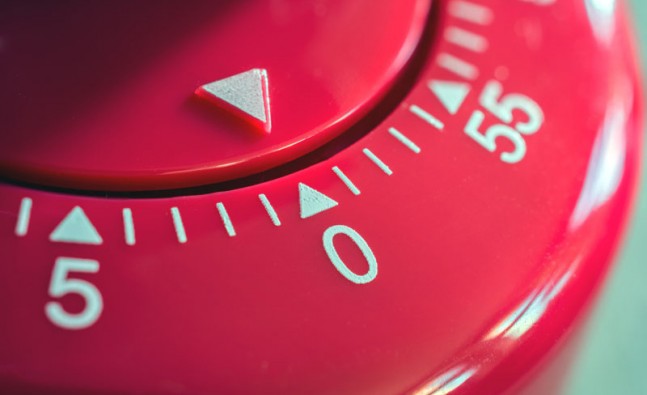How to Calculate How Many Calories You REALLY Need
As anyone who has ever struggled with the scale knows, weight-loss success mostly comes down to keeping track of calories. And while general guidelines offer a daily intake range to shoot for (the Dietary Guidelines for Americans say young women should aim for 1,800 to 2,400 daily calories, depending on age and activity level), that range isn’t necessarily tailored to your specific needs—so it’s not as precise as it could be.
MORE: I Conquered My Past and Lost Over 130 Pounds
Instead, go with this formula, a simplified version of what many nutritionists use for their clients: “Multiply your weight in pounds by 12 or 15—12 if you’re mostly sedentary or mildly active and 15 if you do some kind of moderate or high-intensity exercise almost every day,” says New York City nutritionist Brittany Kohn, R.D. Next, take your age into account. If you’re under 30, do nothing; the number you’ve arrived at is the calorie count you should aim for. In your 30s or 40s? Subtract 200 from that figure. It sucks, but it’s true: As you get older, your metabolism slows a bit, and your system requires fewer calories to function.
Now you know how many calories you need to maintain your current weight. If you’re trying to downsize, just delete 500 from that number. Consuming 500 fewer calories per day gives you a deficit of 3,500 calories a week, which equals about one pound, says Kohn. Losing a pound a week is the safest way to diet because it doesn’t lead to deprivation or nutritional deficiencies, she adds. (You can also ramp up your workouts to burn off calories if you find it tough to cut 500 calories from your daily meal plan.) And if you want to gain weight, tack on 250 to 500 extra calories in healthy, whole foods per day. Every one to two weeks, you’ll have added a pound in a safely, says Kohn.
And remember: While calorie tracking can help you drop pounds, you don’t want to get too caught up in it—especially since there are other strategies to help increase weight loss that don’t involve crunching numbers.
MORE: What 200 Calories of 10 Different Foods Looks Like
-
Drop Pounds Faster by Making These Simple Drink Swaps
Lets be honest: Youre not going to bail on happy hour, coffee dat
-
Crazy celeb diet tricks: The Tea Diet
-
Make water your primary drink
-
How Does Milk Diet Help You To Lose Weight?
When we think of weight loss, we think of foods low in fat and when we
-
Detox to avoid the mid-afternoon slump
-
Exercise tips for weight loss: How do I know if it’s working?
- DON'T MISS
- 4 Spices That Can Help You Lose Weight
- Dance your way to a slimmer body
- Top 15 Benefits and Uses Of Beetroot (Chukandar) for Skin, Hair and Health
- 20 Healthy Juices That Can Help You Lose Weight
- Best Weight Loss Clinics /Centers In India – Our Top 10 Picks
- Is stress making you eat more?
- Offensive Weight-Loss Tool
- The TRUTH About Breakfast and Weight Loss: Does It Really Help You Drop Pounds?
- 10 Ridiculously Easy Ways to Cut Calories and Lose Weight
- Can I lose weight if my only exercise is walking?




